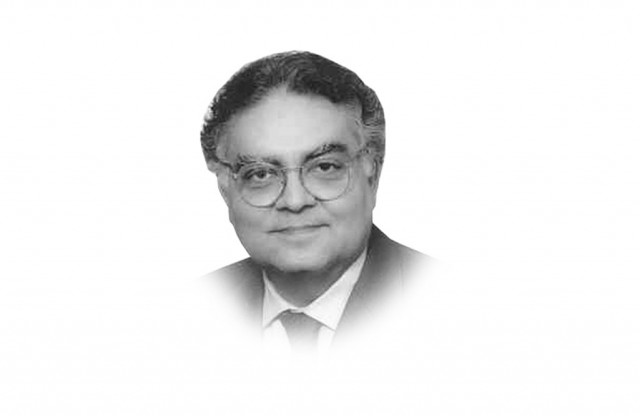The people speak
The 60 per cent voter turnout signifies that the people of Pakistan have given legitimacy to a democratic state.

The writer is Distinguished Professor of Economics at Forman Christian College University and Beaconhouse National University
The fact that the voter turnout ratio was 60 per cent — the highest in Pakistan’s history — signifies that the people of Pakistan have given legitimacy to a democratic state. By legitimacy, we mean the right to rule within a particular polity and state. As Jean-Jacques Rousseau in his Geneva manuscripts has argued, in the very act of granting legitimacy, a people constitute themselves into a nation. This is because legitimacy is granted on the basis of what Rousseau calls a “social contract”, whereby the state guarantees certain rights to the nation in return for getting the right to rule. So, the granting of legitimacy involves the apprehension by a group of people of certain shared values that underlie the specification of rights that the state is required to ensure in terms of the social contract. Thus, the people of Pakistan in risking their lives to vote have re-experienced their nationhood — a nation that was originally conceived by Pakistan’s founding fathers, Jinnah and Iqbal, as being sustained by a democratic state. It would be a state which ensured the right to practise one’s religion and where, through love and freedom, humans could reach transcendent heights of self-actualisation.
The fact that the PML-N, with a manifesto aimed at economic development and a record of reasonably good governance in Punjab, won with a majority in the National Assembly, suggests that the people want an improvement in their material conditions. Given the misery of power outages, inflation and unemployment, they chose not to risk a newcomer to governance in spite of Imran Khan’s considerable potential and charisma. That he has emerged as a major political force powered by the hopes and energy of the youth, indicates that the people have created a future political alternative for themselves at the centre. That Imran Khan’s Pakistan Tehreek-e-Insaf has enough provincial assembly seats to form a government in Khyber-Pakhtunkhwa (K-P), which means that he has been given a chance to prove himself through effective governance in a province which is the hotbed of extremism. If he manages to bring peace to K-P, fulfils his promise of eliminating corruption and achieves an improvement in economic welfare in that province, then he would be able to lay claims to captaincy in Islamabad. Such a claim, then, would be based on measurable performance, just as the PML-N did on the basis of its earlier record in Punjab.
Even at this early stage, it is clear that in spite of the fact that the religious narrative has gained ground in political argument, the people have once again marginalised parties which use exclusively religious rhetoric as an instrument of gaining political power.
The conduct of the elections also manifests the fissures in society and the state. Armed wings of political parties exercise power. Similarly, the extremely low voter turnout in Balochistan shows the lingering sense of alienation of Baloch nationalists from the state. But at the end of the day, the people have placed their hopes in democracy.
Published in The Express Tribune, May 20th, 2013.

















COMMENTS
Comments are moderated and generally will be posted if they are on-topic and not abusive.
For more information, please see our Comments FAQ